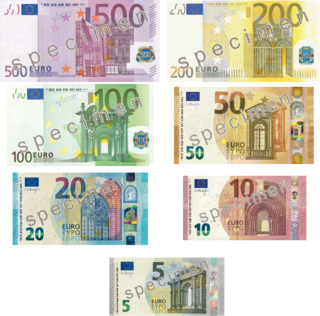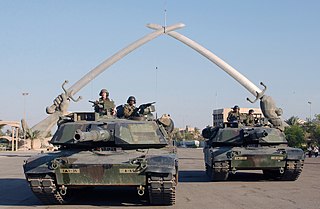The Christian Social Union in Bavaria is a Christian-democratic and conservative political party in Germany. The CSU operates only in Bavaria while its larger counterpart, the Christian Democratic Union (CDU), operates in the other fifteen states of Germany. It differs from the CDU by being somewhat more conservative in social matters. The CSU is considered an effective successor of the Weimar-era Catholic Bavarian People's Party (BVP).

Germany is a democratic, federal parliamentary republic, where federal legislative power is vested in the Bundestag and the Bundesrat.

The Christian Democratic Union of Germany is a Christian democratic and liberal-conservative political party in Germany. It is the major catch-all party of the centre-right in German politics. The CDU forms the CDU/CSU grouping, also known as the Union, in the Bundestag with its Bavarian counterpart the Christian Social Union in Bavaria (CSU). The party is widely considered an effective successor of the Centre Party, although it has a broader base.
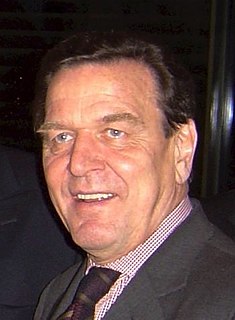
Federal elections were held in Germany on 27 September 1998 to elect the members of the 14th Bundestag. The Social Democratic Party emerged as the largest faction in parliament, with its leader Gerhard Schröder becoming Chancellor.

Federal elections were held in Germany on 16 October 1994 to elect the members of the 13th Bundestag. The CDU/CSU alliance led by Helmut Kohl remained the largest faction in parliament, with Kohl remaining Chancellor. This elected Bundestag was largest in history until 2017, numbering 672 members.

Federal elections were held in Germany on 2 December 1990 to elect the members of the 12th Bundestag. This was the first multi-party all-German election since that of March 1933, which was held after the Nazi seizure of power and was subject to widespread suppression, and the first free and fair all-German election since November 1932. The result was a comprehensive victory for the governing coalition of the Christian Democratic Union/Christian Social Union and the Free Democratic Party, which was reelected to a third term.

Federal elections were held in West Germany on 3 October 1976 to elect the members of the eighth Bundestag. Although the CDU/CSU alliance became the largest faction in parliament, Helmut Schmidt of the Social Democratic Party remained Chancellor.

Federal elections were held in West Germany on 19 November 1972 to elect the members of the 7th Bundestag. In the first snap elections since 1949, the Social Democratic Party for the first time in the history of the second German republic became the largest party in the Bundestag, winning 242 of the 518 seats. The coalition with the Free Democratic Party was resumed.
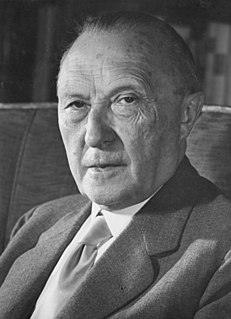
Federal elections were held in West Germany on 17 September 1961 to elect the members of the fourth Bundestag. CDU/CSU remained the largest faction, while the Social Democratic Party narrowly became the largest individual party in the Bundestag, winning 203 of the 521 seats.
The Saxony-Anhalt state election, 2002, was conducted on 21 April 2002, to elect members to the Landtag of Saxony-Anhalt.

Federal elections were held in Germany on 18 September 2005 to elect the members of the 16th Bundestag. This became necessary after a motion of confidence in Chancellor Gerhard Schröder failed on 1 July. Following the defeat of Schröder's Social Democratic Party (SPD) in a state election, Schröder asked his supporters to abstain from the Bundestag motion, knowing the motion would fail and thus triggering an early federal election.
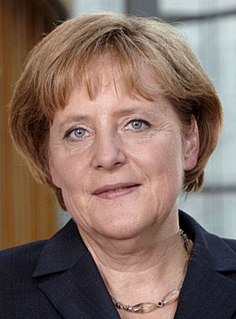
Federal elections took place on 27 September 2009 to elect the members of the 17th Bundestag (parliament) of Germany. Preliminary results showed that the Christian Democratic Union (CDU), its Bavarian sister party, the Christian Social Union (CSU), and the Free Democratic Party (FDP) won the election, and the three parties announced their intention to form a new centre-right government with Angela Merkel as Chancellor. Their main opponent, Frank-Walter Steinmeier's Social Democratic Party (SPD), conceded defeat. The Christian Democrats previously governed in coalition with the FDP in most of the 1949–1966 governments of Konrad Adenauer and Ludwig Erhard and the 1982–1998 governments of Helmut Kohl.
Merkel's first cabinet led the government of Germany from 22 November 2005 to 27 October 2009 throughout the 16th Bundestag. Led by Christian Democrat Angela Merkel, the first female chancellor in German history, the cabinet was supported by a grand coalition between the Christian Democratic Union (CDU), Christian Social Union of Bavaria (CSU), and the Social Democratic Party of Germany (SPD). It followed the Second Schröder cabinet. It ceased to function after the formation of Second Merkel cabinet, which was created after the 2009 federal elections, and was later sworn in on 28 October 2009.

Federal elections were held on 22 September to elect the members of the 18th Bundestag of Germany. At stake were all 598 seats to the Bundestag, plus 33 overhang seats determined thereafter. The Christian Democratic Union/Christian Social Union (CDU/CSU) of Chancellor Angela Merkel won their best result since 1990, with nearly 42% of the vote and nearly 50% of the seats. However, their coalition partner, the Free Democrats (FDP), failed to meet the 5% vote threshold in what was their worst showing ever in a federal election, thus denying them seats in the Bundestag for the first time in their history.

The history of Germany since 1990 spans the period following the Reunification of Germany, when West Germany and East Germany were reunited after being divided during the Cold War. Germany after 1990 is referred to by historians as the Berlin Republic. This time period is also determined by the ongoing process of the "inner reunification" of the formerly divided country.
The North Rhine-Westphalia state election, 1995 was held on 14 May 1995 to elect 221 members of the Landtag of the German state of North Rhine-Westphalia. The incumbent state government at that time was a SPD majority government led by Johannes Rau that tried to defend its majority after 15 years in power. The main opposition was the CDU led by Helmut Linssen since 1990.

Federal elections were held in Germany on 24 September 2017 to elect the members of the 19th Bundestag. At stake were all 598 seats in the Bundestag, as well as 111 overhang and leveling seats determined thereafter.

Peter Hintze was a German politician of the Christian Democratic Union (CDU) and from 2013 one of the six Vice Presidents of the Bundestag. He had previously been federal chairman of the Evangelical Working Group of the CDU/CSU from 1990 to 1992 and general secretary of the CDU from 1992 to 1998. He served as a member of the Bundestag from 1990. He was also Vice President of the Centrist Democrat International.
The next German federal election for the 20th Bundestag will regularly be held between August and October 2021.










